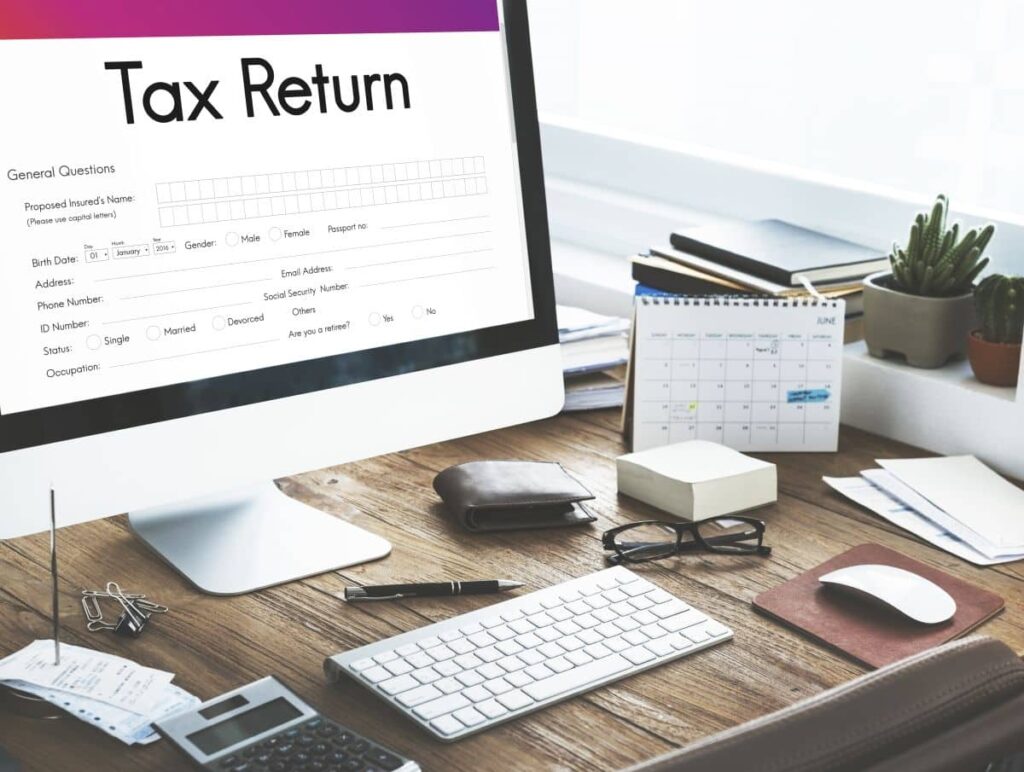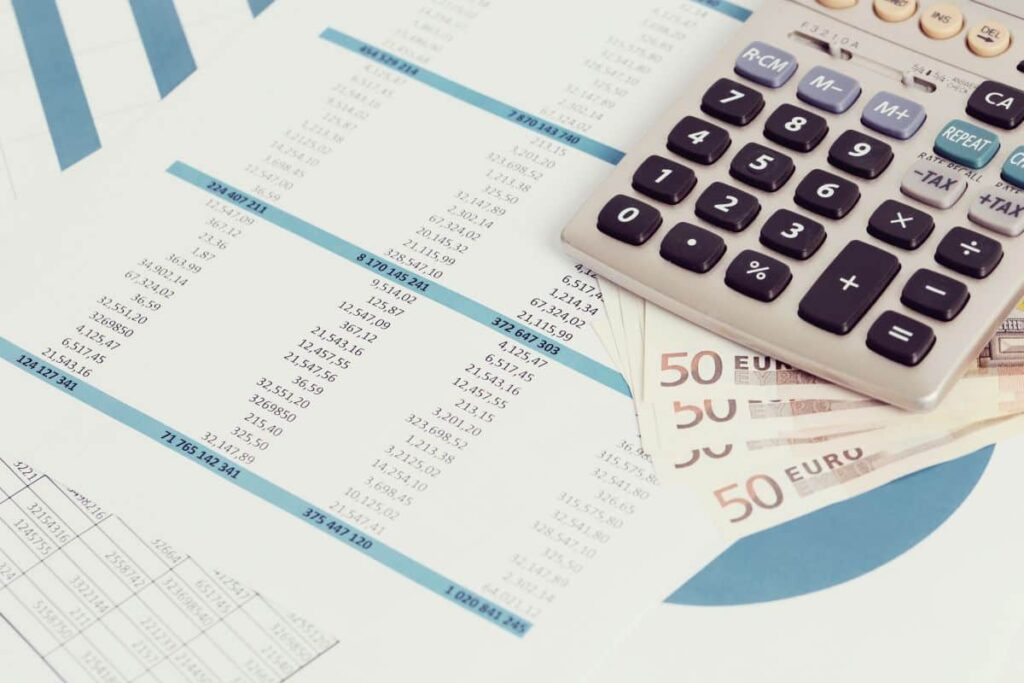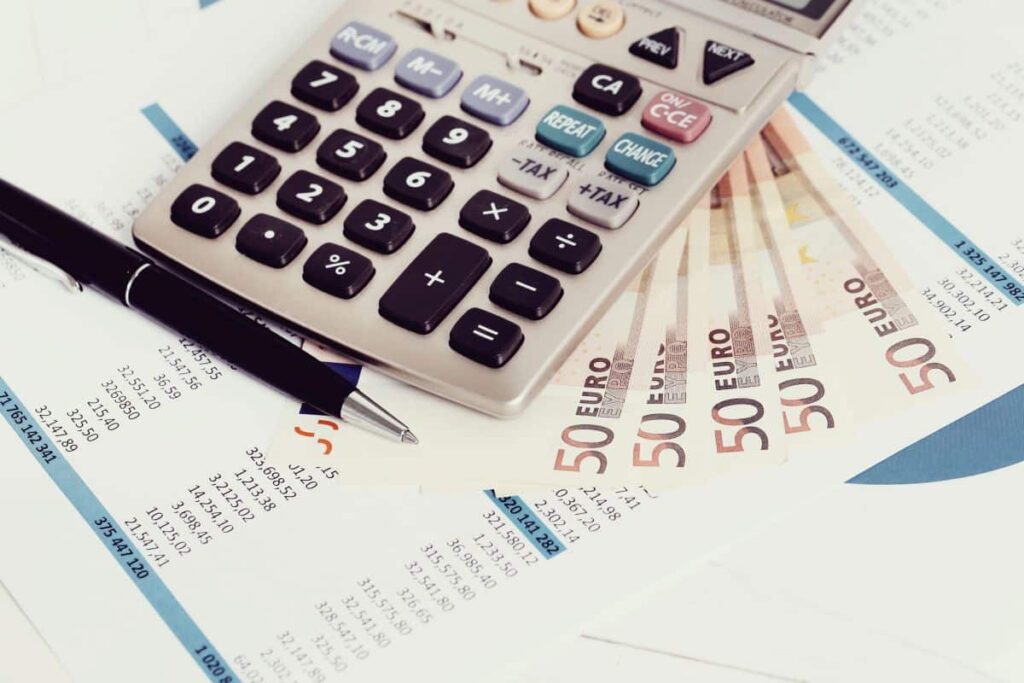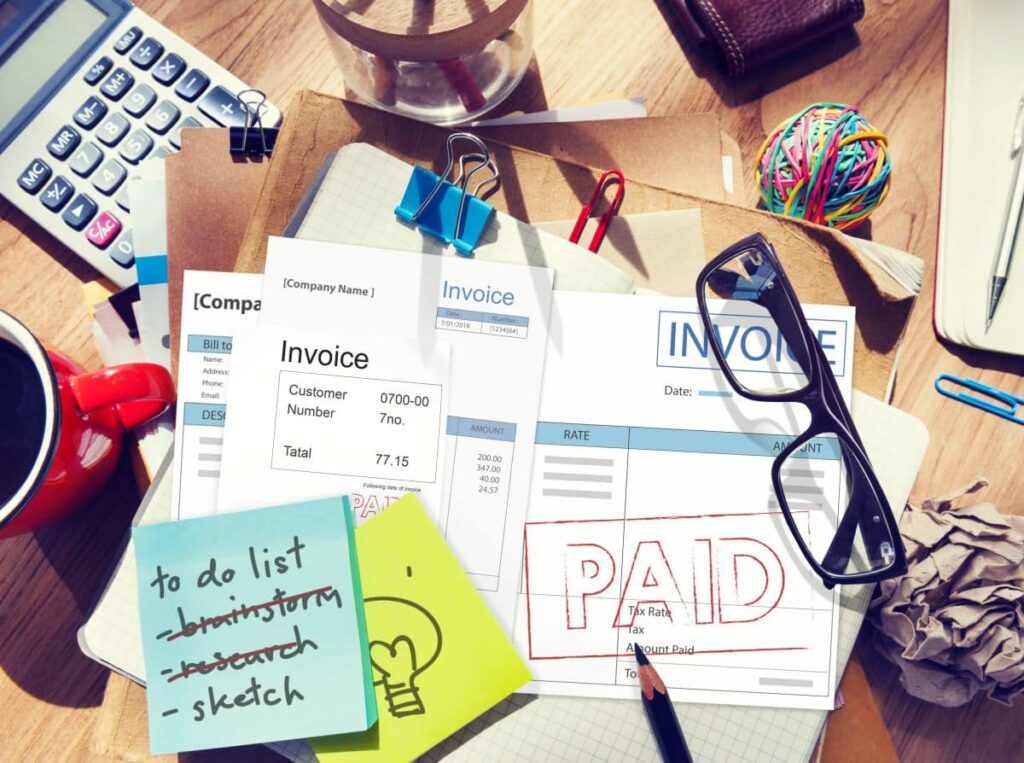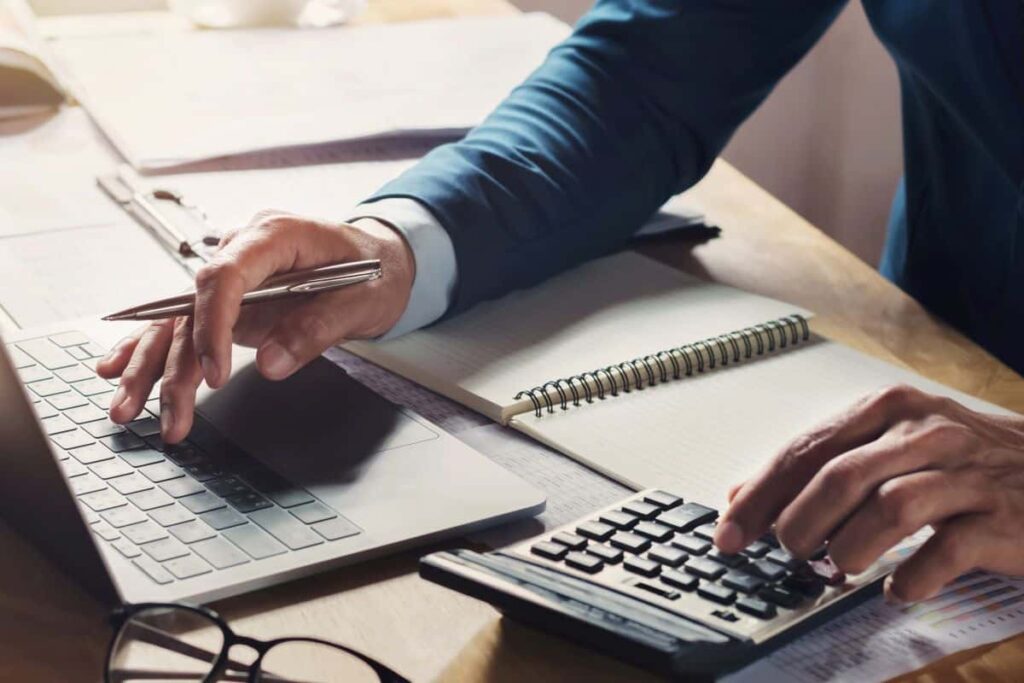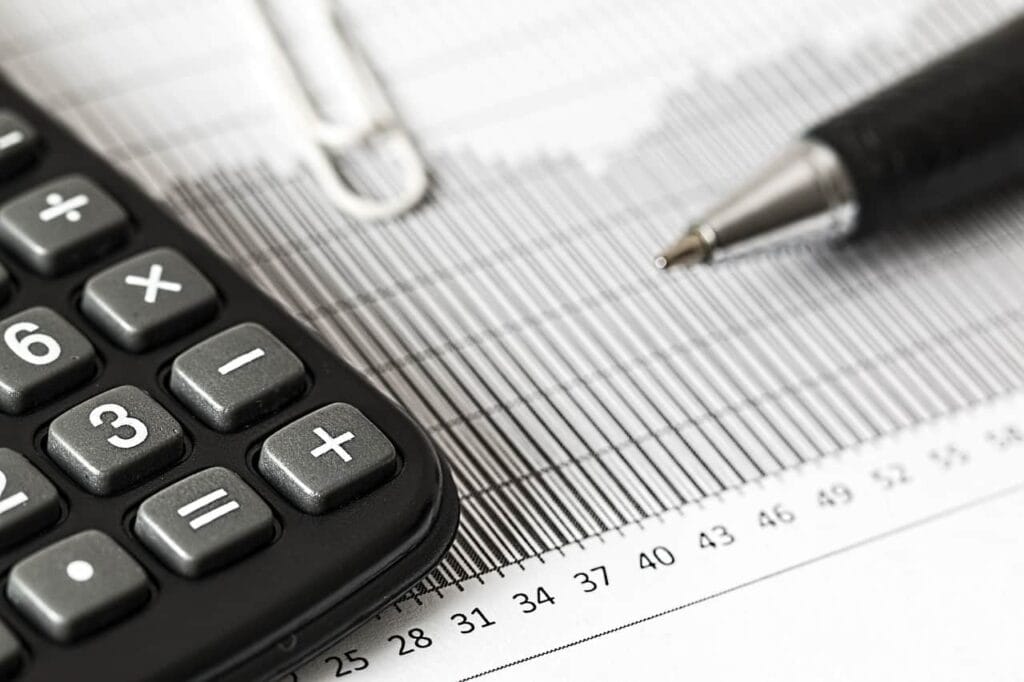It's getting to that time of year: the end of the financial year. It can be stressful for business owners and self-employed people who are dealing with tax return forms, deadlines and all sorts of anxiety related to the EOFY period. But before you break out in a cold sweat and start panicking - don't worry!
Tax return time can be manageable if you get organised beforehand and ensure all your ducks are lined up properly. In this blog post, we're going to share some tips on how to stay organised so that when tax deadline day rolls around, you can breeze through everything with confidence.
So keep EOFY from catching you unawares - keep reading if you want to make tax return time a lot less painful!
Let's get started!
Ways To Prepare For Tax Time
1. Manage receipts
By claiming tax deductions for the majority of the expenses you spend in operating your business, you can lower the amount of income that is subject to taxation. Having the ability to present evidence of payment, however, is required.
If you keep careful track of your receipts during the year, filing your taxes should be much simpler than it would be otherwise. It would be best if you got a head start on the process of preparing your receipts so that you don't end up missing out on any potential deductions later on.
Collect all of your end-of-year tax records, employee information, like salaries and superannuation information, and sales records, like invoices, receipts, and credit card statements.
Nevertheless, the things that can be deducted from your taxes will be different depending on the kind of company you run and what you did with it over the course of the previous year. Because of this, you should consult with your accountant to ensure that you don't lose out on any potential deductions.
Substitute the shoebox full of paper receipts that you have been keeping with a straightforward accounting programme while you are at it. Keeping financial records in either electronic or physical form for at least five years is a legal requirement for smaller companies, thus, it is in the best interest of these companies to be organised.
You should definitely check out the ATO website because you could qualify for various tax reductions, offsets, and rebates.
2. Determine your deductions and write-offs as soon as possible
Are you the proprietor of a small company that has a combined annual revenue of up to ten million dollars? You can instantly deduct up to $20,000 of the cost of qualifying assets from your taxes if you buy qualifying property before the 30th of June.
Take this into consideration if you are considering making a purchase before the deadline. It would be best if you also made an effort to determine whether or not you qualify for any tax breaks or exemptions.
If you wish to reap the benefits of the write-off for this fiscal year, you will need to ensure that you complete your acquisition as soon as possible.
Companies are able to take deductions on expenditures that were pre-paid for use in the following fiscal year, which are known as pre-paid expenditures.
Items that are typically considered to be deductible expenses include things like rent, car insurance, and office equipment and stationery.
The requirements on prepayment do not apply to all expenses; these regulations do not apply to amounts that are less than one thousand dollars or payments of salary and wages.
3. Examine what your current policy covers
Around this time of year, it is time to renew a lot of people's insurance policies. And despite the fact that it could be appealing to renew your existing insurance plans, it is in your best interest to schedule some time to go over your coverage with a broker.
You might assist in making sure that your company is adequately insured by doing an analysis of your company to see what new risks your company might well be exposed to. For example, during the course of the year, if you introduced a new service or product, expanded your workforce, or acquired new pieces of equipment, it is critical to reevaluate your insurance policy to ensure that it continues to provide adequate protection for your company in the event that it experiences a setback.
Talk to an insurance broker when it's time to either renew your current policy or purchase a new one. These professionals are well-equipped to evaluate any gaps in coverage that may exist in your current plan and can suggest the insurance policy that will best serve the needs of your company.
4. Make a call to your lawyer

In addition, the end of the fiscal year is an excellent opportunity to review client arrangements with your attorney.
Due to the failure of the budget to reign in the practice of larger companies making late payments, small and medium-sized enterprises need to develop strategies to ensure that they are paid on time with as little work as possible.
You should also evaluate your financial choices, such as loans, overdrafts, and leasing, to determine whether or not they continue to satisfy your current requirements.
5. Avoid using any manual methods in the coming year
Investigate several ways to improve the efficiency of the technology used in your company. For instance, by utilising a cloud-based solution, you can simplify your cash flow, payroll, and invoices, as well as compliance and reporting procedures.
A good number of these cloud-based systems also come with their very own mobile applications, which you can use on the go to help you organise your receipts.
Access to your company's operations in real-time is absolutely necessary for this day and age. Cloud services eventually deliver higher efficiency and productivity improvements, which makes a firm much more nimble and adjustable as it develops. This is because a cloud provider ultimately provides cloud services. In addition, customers now have a greater understanding of technology, which means that they now anticipate it.
Organise As You Go
It is very simple to lose track of receipts and overlook what you've spent over the course of the previous year. However, you may prevent this from happening by creating a folder in your email inbox and naming it "Tax."
Place all of your receipts and invoices in this folder as you collect them. This can be performed for things like membership dues, magazine subscriptions, and gifts to charitable organisations and office expenditures.
The very same rule is applicable to the reports from your bank accounts and credit cards: store copies of them in a folder on your computer or download them as Excel files so that you can quickly find expenditures to claim and add them up. Then, when it comes time to file your taxes, you won't have to waste time scouring the house looking for misplaced receipts.
Why Be Organised?
You can maximise the amount of your tax refund and be significantly less stressed out during tax time if you have all of your tax paperwork in order. Does it sound fantastic? Continue to read.
1. Maximise your tax refund
If you provide your accountant with a well-organised set of records, they might well be able to discover deductions from your taxes that you were unaware you were eligible for. In addition, if you make it a habit to keep and file all of your receipts, your accountant is going to be in a stronger place to maximise the amount of money that you are eligible to receive back from the government.
2. Stress less about your tax
Keeping on top of your records during the year will make the process of filing your taxes less stressful if you set aside a few minutes each week to do so. You won't have any cause to dread going to see your tax preparer, and the amount of money you get back will make you very happy.
What To Keep?
In order to file an accurate tax return, what kinds of records are you required to keep? Your obligation to preserve records of your income, expenditures and deductions for a period of five years is mandated by the ATO. Reading over your bank records is a straightforward method for determining the specific records and receipts that you'll need to track down.
1. Income
On your yearly tax return, you are required to record all of the money you received during the previous fiscal year. This includes the income you received from your work, as well as interest, dividends, and rental income. To confirm your income, for instance, your accountant might ask for a breakdown of your PAYG contributions, as well as bank and dividend records and rent receipts.
2. Expenses
When it pertains to claiming costs as tax deductions, the basic rule is that you can claim a deduction for everything that you've paid for, which assists you in earning your income. This includes anything from travel costs to professional development costs. This can include everything from gas to further education for your career.
3. Other deductions
You might also be eligible to claim tax breaks for other things, including the following:
- Personal contributions to a retirement fund that are made in addition to the required minimum amount.
- Donations or gifts to charitable organisations that are greater than $2.
- When you file your taxes for the next year, you can deduct the money you spent on handling your tax affairs from that year's taxes.
It is imperative that you maintain accurate documents so that your accountant can incorporate them into your tax return.
Ways To Be Organised
Your tax receipts can be arranged in a variety of ways, and you can choose the one that works best for you. It is optional for your system to be intricate; all it requires to do is to function properly.
1. The analogue method
Keeping all of your receipts in a box or folder is a tried-and-true method for protecting your documents, even if it does not result in an excessive amount of organisation. Nevertheless, you may confidently hand it over to your accountant at the end of the fiscal year, allowing them to do their enchantment on the numbers.
The issue with using this technique is that once the paper records are lost, they are lost for good. Receipts printed on paper grow less legible over time and are more likely to be destroyed, misplaced, or lost. And then there are all of those electronic receipts; what should one do with them?
2. Going digital
Electronic record keeping and receipt organisation is now the most efficient method available.
Take a picture of any paper receipts using your smartphone, and then make sure to save the image somewhere safe that is not your phone. This will be the easiest way to accomplish this task. For instance, you may send it to yourself in an email with a pertinent subject line, making it simple to locate whenever you require it.
There is a wide variety of software accessible in the form of mobile applications that can assist you in keeping tabs on your earnings, expenditures, and deductions. In addition, a good number of them provide safe backups of all of your information and easy ways to communicate it with your tax preparer.
You can rest assured that you will have a positive attitude regarding tax season and be looking forward to collecting the largest possible refund from your tax return, no matter which technique you decide to use.
Remember to Lodge
Keep in mind that the 31st of October of every year is the deadline for filing your individual tax return or engaging the services of a registered tax agent. This is true for the majority of tax returns filed by businesses, with the exception of those filed by companies.
You are required to file your individual tax returns by the 31st of October every year if you file them yourself; alternatively, you can file as soon as the 1st of July. Using the eLodgement service offered by the Australian Taxation Office, which can be accessed through your MyGov Account, making a self-lodgment is now simpler than it has ever been.
When you use the eLodgment service, several areas of your tax return, like your income from employers and interest collected in bank accounts, will be pre-filled. All you will be required to do is verify that the facts are accurate and then submit your return.
If you will be personally responsible for submitting the firm's tax return, then you'll have to visit the ATO website to confirm the deadline. The date of the 28th of February is widely considered to be the deadline for the majority of corporate tax returns (including those filed by corporate trustees). You will be required to do so in advance of the deadline in order to hire a tax accountant who is registered with the government.
You can establish a MyGov account right here on this page if you do not already have one. Having a MyGov Account is helpful since it enables you to collect refunds from Medicare for doctor's appointments and other associated services. These refunds can be requested through your account.
Tax Agent vs DIY

When it comes to filing their taxes, many individuals seek the assistance of a tax advisor or accountant.
Working with a professional has many advantages, one of which is that they might assist you in locating deductions that you might not have been aware of. In addition, when you file your subsequent tax return, you can deduct the amount that you paid for the accountant's services from that total.
Suppose you possess simple investments or income from a company. In that case, I think it would be best for you to prepare your tax return on your own, even though there are many advantages to working with a tax professional. This is for your benefit so that you are aware of the nature of the claim you are making and have the proper evidence readily available (receipts, invoices).
Because the Australian Taxation Office may audit your previous returns at some point in the future, it is in your best interest to be familiar with the general regulations so that you stay aware of the situation.
If You Intend To Do Your Own Return, Connect myGov To The ATO Now
Individuals who are planning to be using myTax for the very first time are strongly encouraged to link their myGov accounts to the ATO as soon as possible, as this is the single most important piece of advice that can be given to these individuals. You will be asked to respond to two questions based on your data, which may be something like an income statement or a Centrelink payment breakdown from the previous two years, or it could be the data of your bank account.
Those who are unable to provide sufficient evidence to verify their identification will be required to call the ATO in order to obtain a one-of-a-kind connecting code that can be submitted in place of the required responses to the inquiries. When calling the ATO, taxpayers are required to be prepared with their identifying information in order to accelerate the process. This includes having their Tax File Number as well as their driver's licence or Medicare card on hand.
People contacted for a variety of reasons, the most common of which was to request a connecting code. Although this is a vote of confidence from consumers wanting to be using myTax, the process can be sped up significantly if you become organised early on in the process.
Whenever you need to contact the ATO to link, we definitely advise you to do so immediately so that you do not have any difficulties when you decide to file your tax return. Please disregard this recommendation if you have already called the ATO to link. If you require a linking code, the month of June is an excellent time to have that taken care of.
Once individuals have connected their accounts with the ATO, they are able to not only file their tax returns during the appropriate time of year but also monitor their refunds, check their historical tax records, control their super accounts, and see their income statements.


